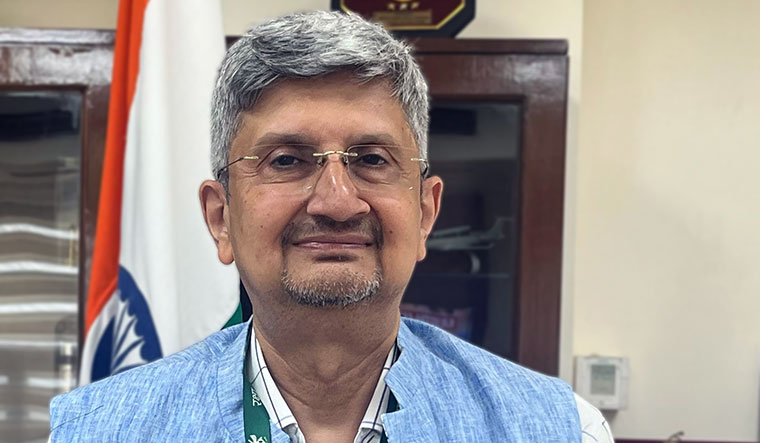Interview/ Samir V. Kamat, chairman, Defence Research and Development Organisation
Q How important are defence startups in India’s overarching aim of achieving atmanirbharta in defence production? What role can they play?
A Defence startups are crucial for India's atmanirbharta. India’s defence sector is an important area with an ocean of opportunities for self-reliance.
With large-scale modernisation requirements of the Indian armed forces, India’s vision for Atmanirbhar Bharat has provided further impetus to realise the goal of indigenisation of the defence sector. [Startups] bring innovation, agility and new technologies, helping reduce reliance on imports.
A large startup ecosystem allows India to explore multiple emerging ideas in parallel and assess initial outcomes. The larger industries (including defence PSUs) can then focus on amplifying the success stories in the startup ecosystem.
Q Are there particular areas and verticals where the government wants startups to focus on?
A The government wants startups to focus on deep tech areas like artificial intelligence, robotics, cyber security, unmanned systems, and advanced materials, including dual use technology, where rapid innovation can significantly enhance capabilities.
Q From the government’s point of view, what are the limitations of startups and how is the government planning to overcome these?
A Startups face limitations like funding and lack of experience. Access to finance is particularly relevant for startups with high funding requirements for product development, validation, certification and scaling. The government is addressing these by providing grants, establishing innovation hubs and promoting partnerships between startups and established defence firms.
There are various initiatives of the government that directly and indirectly address the issue of lack of finance to startups. Some of the noteworthy initiatives under ministry of defence schemes are the Technology Development Fund Scheme, iDEX and the Dare to Dream contest.
Q Startups are a critical part of an industrial ecosystem, more so in defence. Why did it take so long for this era of startups to take off?
A The era of defence startups took time to take off because of regulatory requirements, high entry costs, strict quality assurance and certification requirements, lack of test facilities, limited number of users and the presence of already established PSUs. Besides, a level of economic upliftment in general and the demographic dividend in particular was needed to induce bright youngster to eschew jobs and launch startups.
Q Recently, the DRDO has awarded several cutting-edge contracts to startups. What was the thinking behind this move? Is there a plan to award more such projects?
A The DRDO's engagement with startups reflect a strategic shift towards harnessing innovation and speed in developing cutting-edge technologies and to promote self-reliance in the area of defence by providing grants to Indian startups. Enabling government of India policies were a key factor.
More of these contracts will be awarded to suitable startups as per requirements.
Q State-owned PSUs and DPSUs still account for 79.2 per cent of India’s total defence production in terms of value. Private companies have contributed only 20.8 per cent. Is there an ideal ratio the government is looking at?
A The government aims to increase private sector participation in defence production, striving for a more balanced ratio. Future policies will likely support this shift, promoting competitiveness and technological advancements in the sector. However, for a strategic sector like defence, a modicum of direct government control is desirable to deal with unforeseen situations. The ideal ratio will need to be evolved over time.


